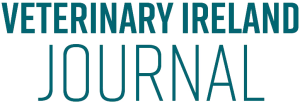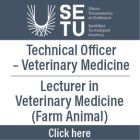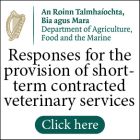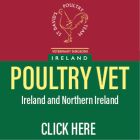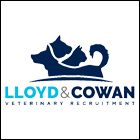Focus > Farmer survey - September 2020
Vet-farmer communication in a ‘new normal’
Leon Duffy, technical adviser at Boehringer Ingelheim Animal Health reports on the recently published FarmComm survey, carried out to better understand farmers’ needs in relation to animal health, veterinary consultations and communication
Suddenly, and with minimal warning, many aspects of daily life changed with the introduction of lockdown due to the Covid-19 pandemic. Vets and farmers throughout Ireland felt the wide-ranging and often severe impact of this in many aspects of their businesses – stabilisation of the milk price, stock trade and input market are now filtering through.
To understand farmers’ wants and needs in relation to animal health, veterinary consultations and communication, Boehringer Ingelheim Animal Health undertook the FarmComm survey1 during May 2020. Believed to be the only one of its kind in Ireland, the goal was to support farmers and their vets to maintain the level of communication required to sustain high levels of animal health, welfare and productivity. It was prompted by the sudden and dramatic changes in the way producers were forced to work with their vets as a result of Covid-19 affecting not only routine farm visits but activities often considered completely normal such as trips to marts, shows and farm walks.
The study
The study was run online and supported by many leading media and farming organisations throughout Ireland and the UK. More than 350 farmers completed the study with participants well-distributed geographically and representing all types of livestock farming. Analysis showed that 23% were dairy only, 25% were beef and sheep and the rest were split between sucklers, beef finishers, calf rearers and dual dairy-beef farms. Analysing the data in more detail shows that dairy farmers tend to have their vet out on the farm most regularly, which is no surprise (see Figure 1). So how, in these unusual times, have vets been working with their farm clients?
Q: How often does your vet typically visit the farm?

Figure 1.
Information void
The early questions in this study aimed to understand the extent of the information void and communications gap that lockdown brought.
Without the trips to marts, shows or farm walks and the absence of routine vet call-outs or practice meetings, farmers were working in isolation with little or no contact with the outside world. This study set out to establish what are the other main sources of communication for farmers to gain information on animal health besides talking to their vet (see Table 2).
Figure 2.

Figure 3.![]()

Figure 4: Online meeting platform preferences.
Main findings
Ninety three per cent of respondents said that, under normal circumstances, they like to attend practice meetings. When asked about online and virtual practice meetings, 46% were keen on small group meetings using platforms such as WhatsApp, while 38% were in favour of larger group meetings via Zoom.
For specific one-to-one communication, phonecalls still ranked as the number-one method of communication, followed by email, text and WhatsApp.
Focusing on one-to-one contact with your vet, some vet practices are looking at different ways to communicate with clients for certain aspects of their work during the current period of social distancing (not emergency call-outs).
Virtual meeting platforms were also examined for one-one-one communication, and of all of those available, Zoom was most preferred but, perhaps more importantly, there was an appetite to explore the various options.
When asked about social media, Facebook was the most preferred, followed by YouTube and Twitter. One in five farmers said they wanted more information from their vet via social media, while a similar number favoured communication via webinars and podcasts.
For some years, social media has been well-used by a proportion of vets and farmers, while online webinars and virtual meetings have been few and far between. An increasing number of virtual practice meetings and events are now taking place as a consequence of lockdown. Going forward, restrictions due to social distancing and large mass gatherings will bring about change more rapidly than anyone could have expected.
-
Boehringer Ingelheim Animal Health FarmComm survey of farmers in the UK and Ireland. A total of 337 responses were received.
